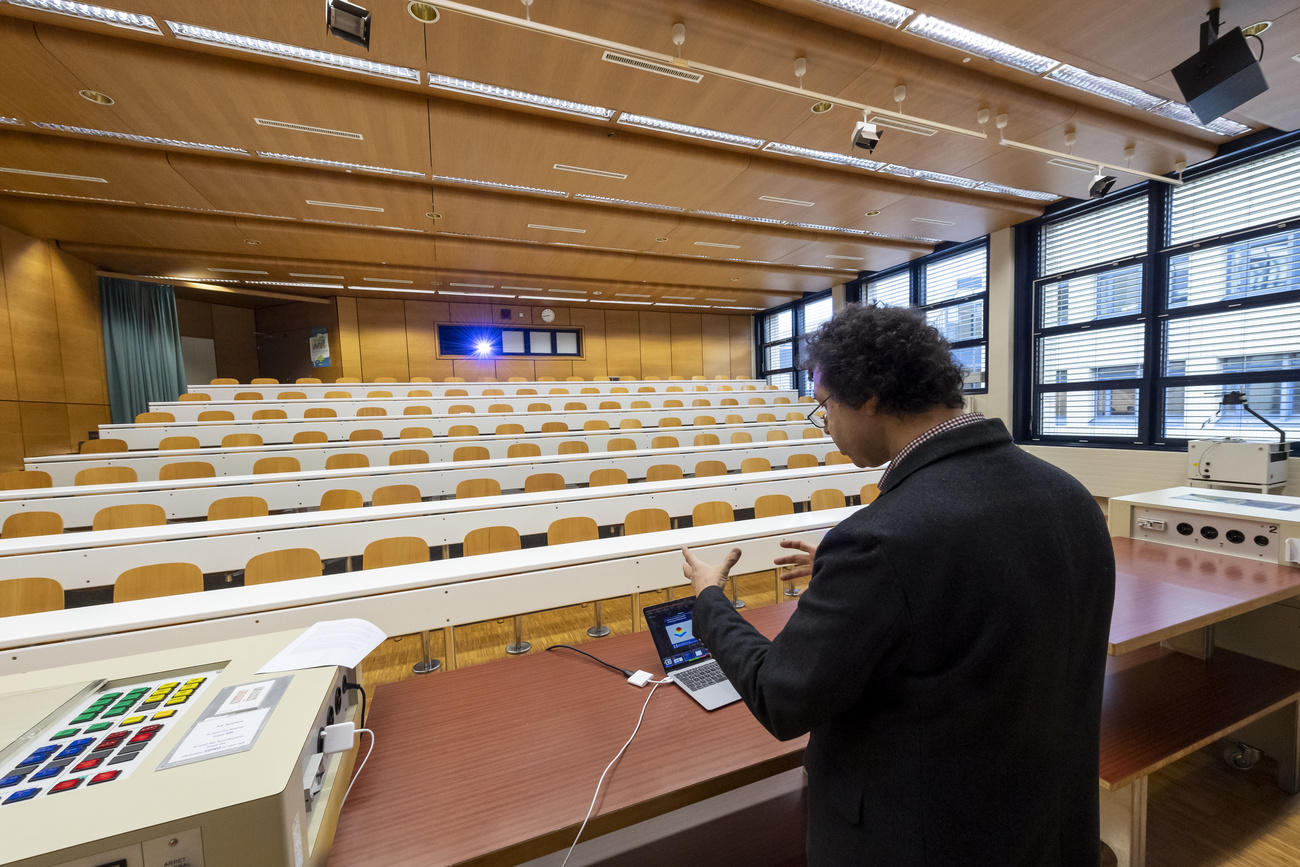Switzerland closes its schools to slow virus spread

On March 13, the Swiss government announced the temporary closure of schools and universities nationwide to slow the spread of the novel coronavirus. In so doing, Bern caved in to growing calls for closures and followed the example of other European countries.
Around the world, 39 countries have so far announced or implemented nationwide shutdowns of their schools or universities in a bid to contain the virus, according to UnescoExternal link, affecting over 420 million students. That number is widely expected to increase.
Italy, one of the most severely affected countries, has closed all schools amid a wider nationwide lockdown. France announced on March 12 that it would shut its schools, nurseries and universities from March 16. Austria also ordered its schools closed. In Germany, Saarland has become the first state to order closures.
In Switzerland, the authorities were initially hesitant to close schools, Interior Minister Alain Berset said at a press conference on March 13.
The authorities had reasoned that the elderly were most at risk of falling seriously ill after contracting the virus, according to the first studies of the Covid-19 disease. Children appear to be less at risk. Because childcare is often left to retired grandparents, potentially infected children staying with their grandparents would have exposed more elderly people to the risk of contagion.

More
Switzerland imposes sweeping measures to contain coronavirus
This calculation changed on March 13. Berset explained that a new report by the European Centre for Disease Prevention and ControlExternal link (ECDC) had prompted the government to reconsider its position.
DIstance learning
The Federal Council told reporters on March 13 that schools would be closed at least until April 4. Cantons Vaud, Fribourg, Neuchâtel and Valais went further by announcing longer closures until April 30.
Distance learning is being offered to students, but this is still being sorted out. Scheduled exams will nonetheless go ahead with schools taking appropriate protective measures.
The umbrella organisation representing teachers in Switzerland (LCH) said the nationwide school closure was a “logical step”. But the news, which had been expected, still came as a shock to many parents and teachers who will have to suddenly reorganise their work and teaching schedules.
For families where there may be a risk of inter-generational transmission of the virus, or for parents who are health or nursery workers, schools may open special classrooms for reduced numbers of students.
Meanwhile, some parents have already set up Whatsapp and Facebook groups to help each other find solutions.
Education is the responsibility of the cantons in Switzerland, so normally cantons would decide about closures. The epidemics law allows the Swiss government to step in to strongly suggest and even order a blanket or partial school system shut down.
The Federal Council said that the decision of closing nurseries would be left to the cantons.
Universities
The closures on March 13 included higher education and training institutions.
“From this evening, Friday 13 March, until the end of April, the University of Lausanne (UNIL) will operate with resources reduced to the bare essentials. Students and staff are required to stay off campus. The buildings will be closed. Access to the campus will be restricted to staff whose presence is required for essential tasks and to faculty members whose presence is required for essential tasks,” the UNIL website saidExternal link.
The Swiss Federal Institutes of Technology in Zurich and Lausanne have moved to offer some classes online (EPFL until April 19, ETH Zurich until the end of the semester).
Other universities, such as Lucerne, Geneva and Bern, have also announced to expand their digital offerings and remote lectures.
The ETH Zurich has had one known infection as of Friday. The University of Zurich recorded 10 cases by March 10, when it last shared such information.

More
Coronavirus: the situation in Switzerland

In compliance with the JTI standards
More: SWI swissinfo.ch certified by the Journalism Trust Initiative














You can find an overview of ongoing debates with our journalists here . Please join us!
If you want to start a conversation about a topic raised in this article or want to report factual errors, email us at english@swissinfo.ch.